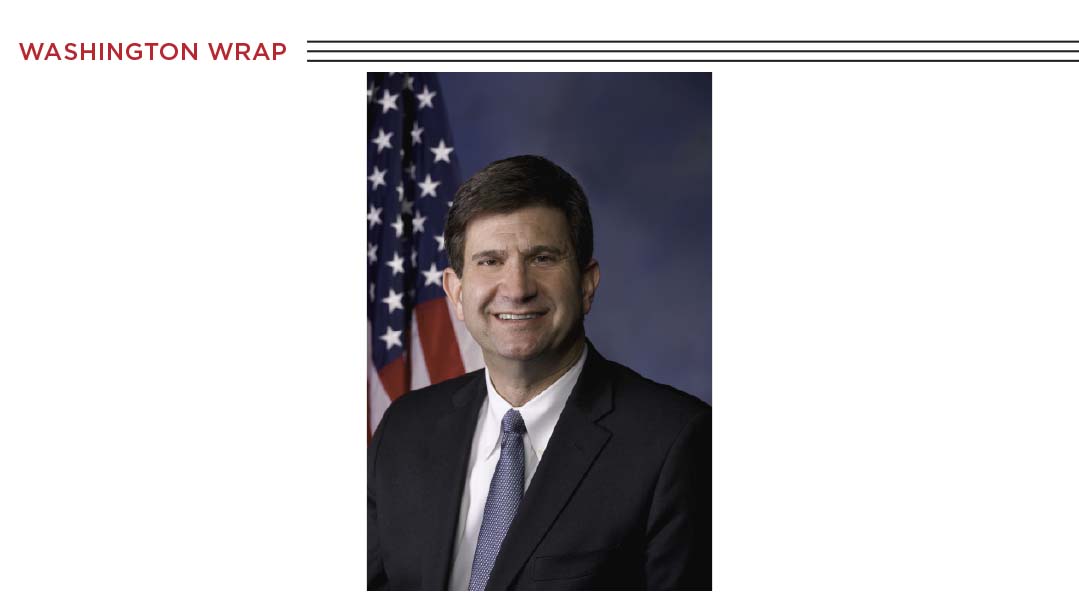Holding Down the Center

Congressman Brad Schneider on Israel’s relations with the Democratic Party, and about the fiscal logic of a $3.5 trillion social spending package

Congressman Brad Schneider, a Democrat representing Illinois’ 10th District, Chicago’s northern suburbs, is one of the most active House members when it comes to Israel. Just last Thursday, the House Foreign Affairs Committee approved his latest bill, calling for the White House to expand on the Abraham Accords and improve ties between Israel and Arab states. Schneider is always careful to secure bipartisan support when it comes to Israel, and this bill too is supported by members of both parties. I asked him about Israel’s relations with the Democratic Party, and about the fiscal logic of a $3.5 trillion social spending package.
When the Democrats need every single vote, it seems like the progressive wing is controlling the agenda. How do you feel about what we’re seeing unfolding?
“Well, I think we’ve got to focus on the outcome. I was obviously very angry about what a small fringe tried to do two weeks ago in blocking the vote on Iron Dome. We worked to make sure that we got a very quickly got to the floor a standalone bill in support of replenishing the interceptors. And it passed 420 to 9. You had across the board support of virtually every Democrat and every Republican.
“On Tuesday, when it passed, it would have passed without a single Republican vote, just because of the politics here. So I’d always prefer a bipartisan vote when we talking about US-Israel relations. And that’s all we got on Thursday. That doesn’t excuse the fact that there are folks who are antagonistic to Israel and the US-Israel relationship, and we need to be aware of it and take all the steps necessary to make sure that we are preserving the very special, ironclad relationship between our two countries.”
And yet this small group that doesn’t want to compromise on anything seems to have all the leverage. Are we entering a new era in which the progressives determine what’s going to happen?
“Not at all. If you look at the broad agenda, it doesn’t mean it’s always going to be easy. But I think even with a $3.5 trillion package or $1.5 trillion, whichever way it goes, it is. I’m a member of the New Dem Coalition, as an example, and it is the more centrist policies in this discussion that are leading the way.
“But with respect to Israel, again, you have 420 members vote for funding Iron Dome. The best thing we can do for Israel is to make sure we keep support of the Israel-US relationship bipartisan. That we can get 400 votes of support, whether it’s a Republican Congress, Democratic Congress, a narrow majority or a wide majority on either side, that the support for the US-Israel relationship runs across the full swath of the United States, the House of Representatives and the US Senate.
Are you worried that four or six years down the road, they’re going to be not a fringe group anymore, but a majority that actually decides policy?
“I’m not afraid, because today, and tomorrow, and the day after, I am working, and I’m not alone. I have lots of allies and people working with me — to make sure that the Democratic Party and the core of Congress reflect the broad swath of the United States, not the fringe. And I’m working with my colleagues to make sure that we make the case, whether it is the case for advancing policies on the environment and protecting health care and education, or advancing policies on foreign affairs, including a strong US-Israel relationship, that we’re building a coalition that reaches across the country and across the aisle.”
I want to ask you about the $3.5 trillion package. Republicans are making the case that is not fiscally responsible. You could counter that Trump was not super fiscally responsible. But the question is, how are you going to pay back this $3.5 trillion?
“I believe in fiscal responsibility, it’s why I came to Congress. I believe that we should pay for things. In 1999, the Clinton administration worked with Congress, we eliminated deficits, and had a plan to pay down the debt over the next ten years, and it was under the next administration that the debt ballooned again, and we’ve seen it growing in every administration and every year since then. So I think we can do it in a responsible way.
“With respect to the Build Back Better Agenda — and I say this as a member of the Ways and Means Committee — we have included in our package very sensible ways to pay for it. And that includes raising the corporate tax from 21 percent —we’re still debating whether it’s going to be 25 or 26.5 percent. Making sure that corporations pay their fair share. It’s raising the top marginal income rate on wealthy individuals, the wealthiest individuals, from 37 percent, lowered in 2017, back to 39.6 percent. And [if it were to pass] next year, anyone making under $500,000 would actually have a tax cut. Whether it’s $3.5 trillion or a number less than that, we have the mechanisms to pay for it.
“I’m committed to whatever we do and we’ll address the challenges we face, whether it’s climate, health care, education. But we will do it in a way that’s paid for, distinct from what happened four years ago in 2017, when the Republicans passed a tax cut that came up $2 trillion short.”
(Originally featured in Mishpacha, Issue 880)
Oops! We could not locate your form.







